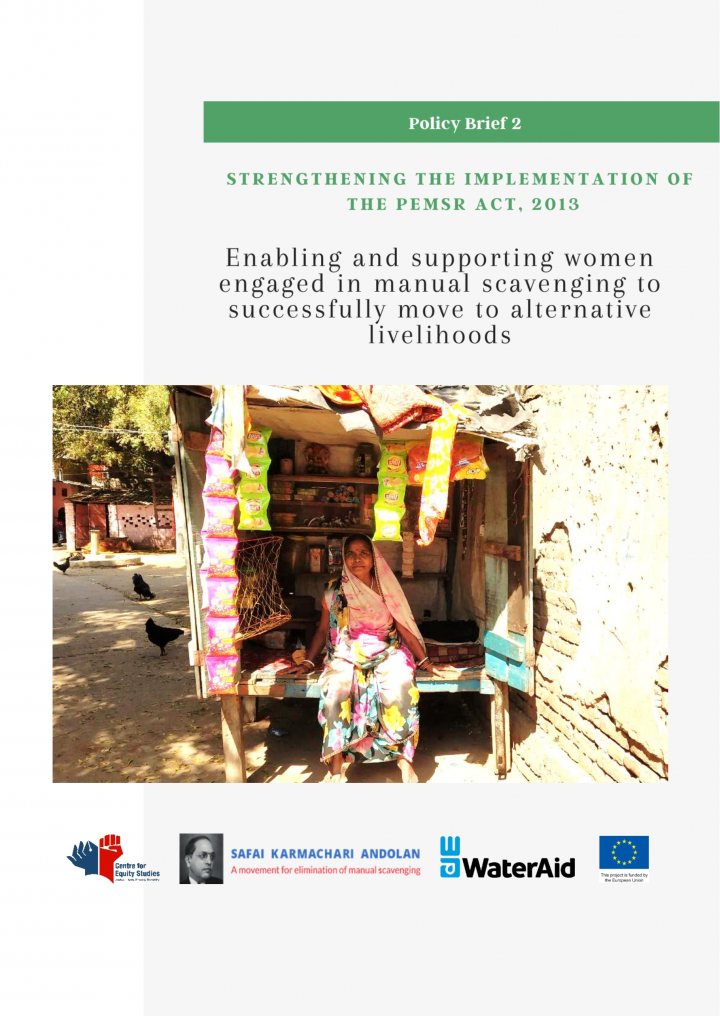Enabling and supporting women engaged in manual scavenging to successfully move to alternative livelihoods Mander, H., Kumbhare, S., Bhattacharya, A., Chanchani, M. (2020)
In India, gender and caste plays a dominant role in the kinds of jobs that women in the workforce are employed in. It is well established that caste and patriarchy are the main compulsive factors that force people, especially women of the specific scheduled caste communities, into manual scavenging. They are into different forms of manual scavenging, mainly cleaning the insanitary dry latrines and carrying and disposing the human faeces thereof and assisting male folks in carrying and disposing the waste from septic tanks and other sources. Safai karamchari women are discriminated against, due to the fact that they are poor, Dalits and women. They are not only discriminated against by society and administrative systems at large, but also within their own communities where patriarchy persists.
A number of studies have shown that more women are engaged in manual scavenging than men.
Bibliographic information
Mander, H., Kumbhare, S., Bhattacharya, A., Chanchani, M. (2020). Enabling and supporting women engaged in manual scavenging to successfully move to alternative livelihoods Centre of Equity Studies, Safai Karamchari Andolan, WaterAid India, European Commission
Filter / Tags
EnglishImport to Sanitation Workers PlatformLegal and regulatory frameworksGenderFinancial security, alternative livelihoodsLegal and regulatory frameworksGenderFinancial security, alternative livelihoodsWomen's rights & representation and empowermentGender equality
Downloads
Enabling and supporting women engaged in manual scavenging to successfully move to alternative livelihoods
Type: application/pdf
Size: 0.93 MB

